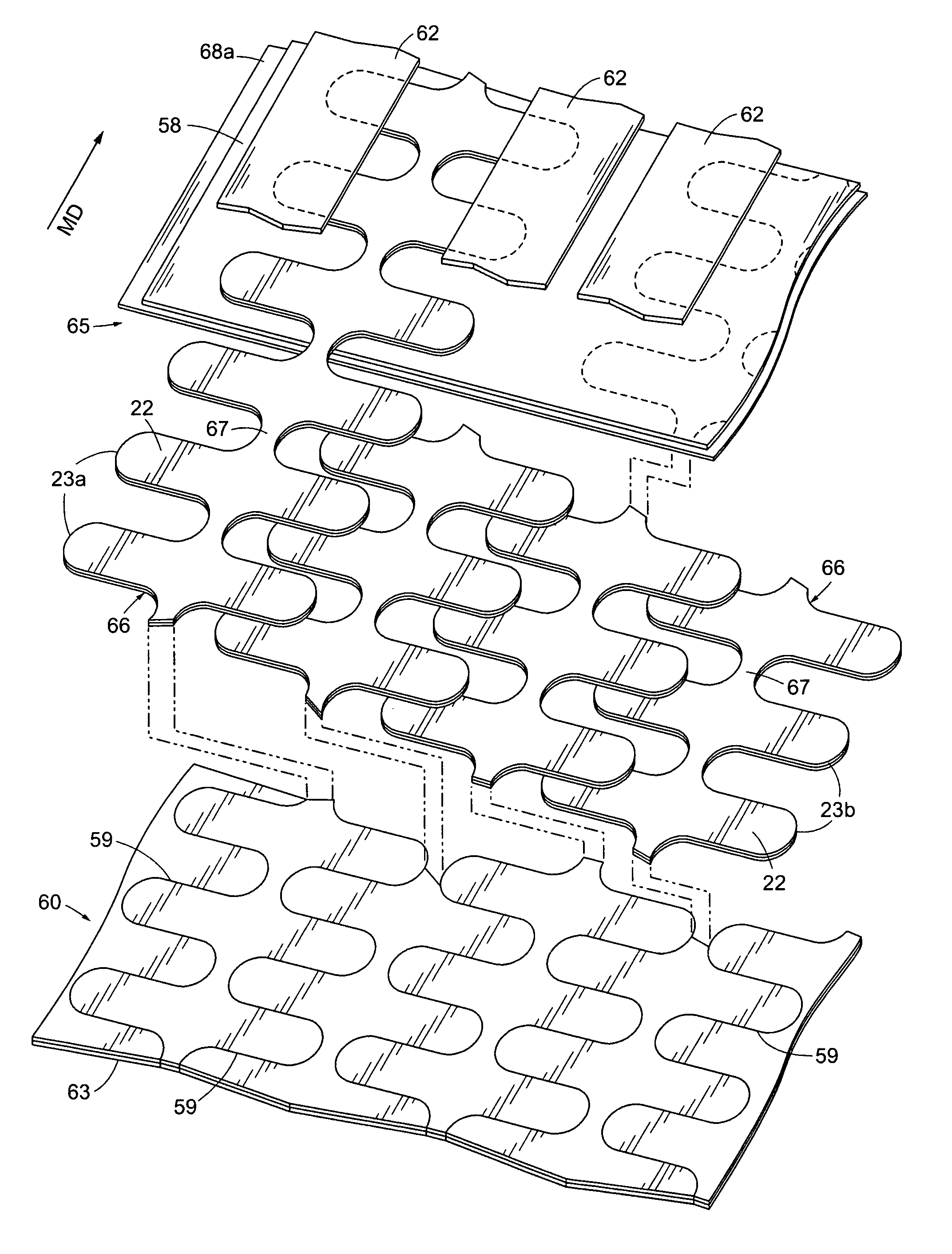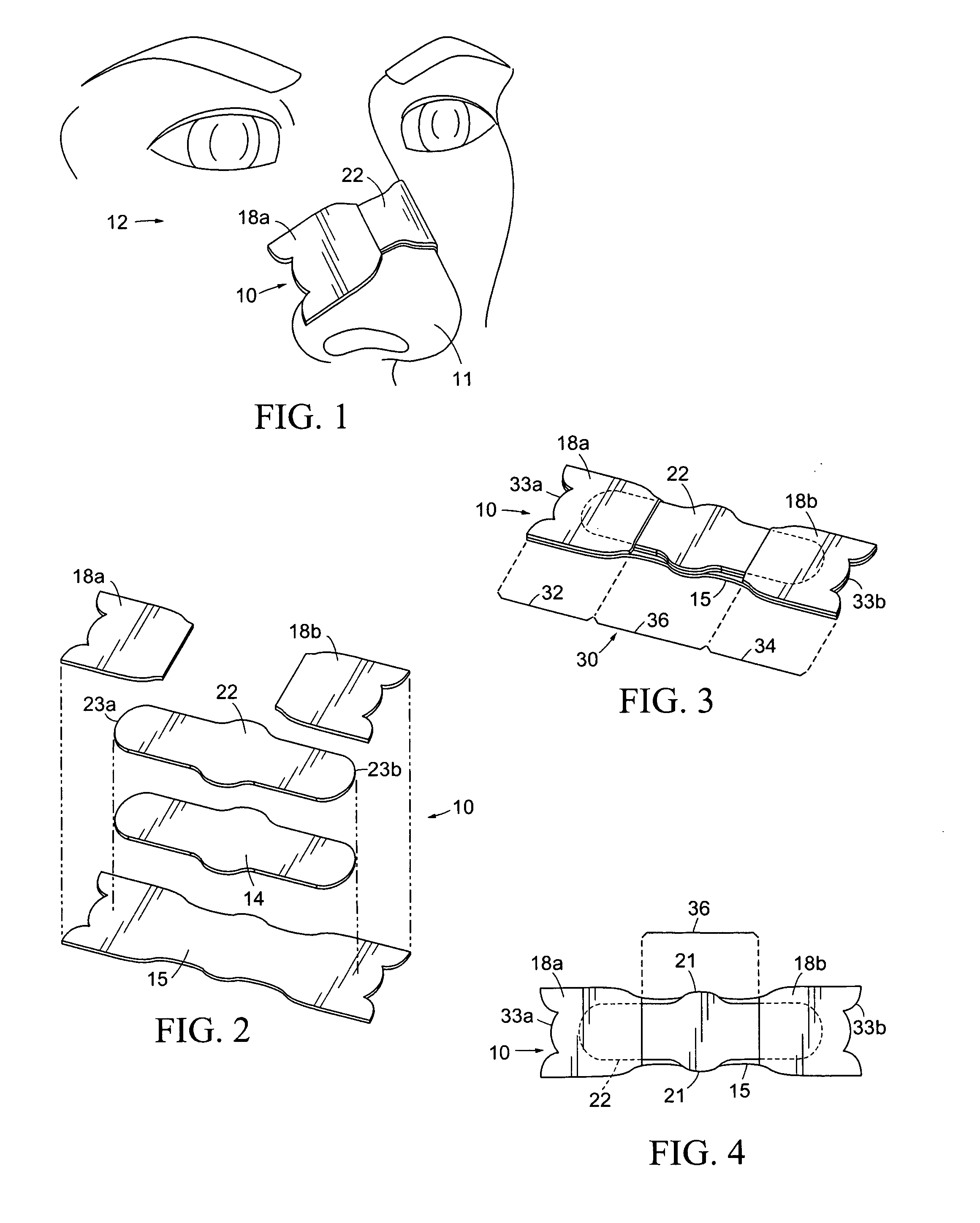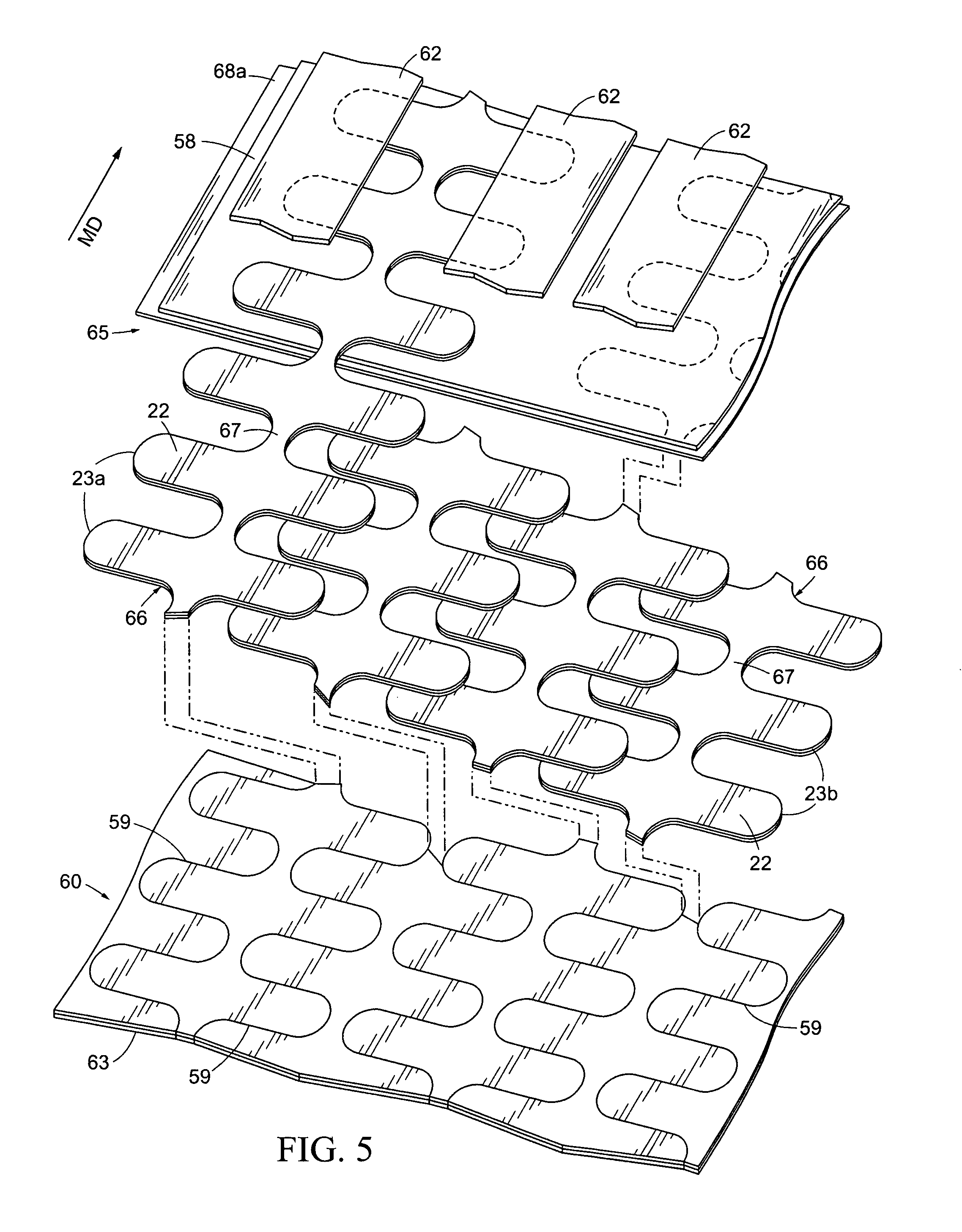Nasal dilator and method of manufacture
a dilator and nasal tube technology, applied in the field of nasal tube dilator and manufacturing method, can solve the problems of affecting breathing, sleep disturbance, irregularities and general discomfort, and typically having limited properties, so as to reduce waste, reduce cost, and ensure the effect of dilating
- Summary
- Abstract
- Description
- Claims
- Application Information
AI Technical Summary
Benefits of technology
Problems solved by technology
Method used
Image
Examples
Embodiment Construction
[0054]An embodiment of a nasal dilator, 10, in accordance with the present invention, is illustrated in FIG. 1 which shows dilator 10 engaged to a nose, 11, seen as a portion of a human face, 12.
[0055]As seen in FIG. 2, dilator 10 comprises a laminate of vertically stacked material layers. Said layers comprise a base layer having at least one base member, 14, a resilient layer comprised of at least one resilient member, 22, and a cover layer composed of cover members, 18a and 18b. The layers may be laminated to each other by any suitable means including heat or pressure bonding, but are preferably laminated by an adhesive substance disposed on at least one flat surface side of each thereof. Cover members 18a and 18b are dimensionally configured to correspond to at least portions of the skin surfaces of outer wall tissues adjacent first and second nasal passages, respectively. The cover and / or base layers serve as the primary engagement element while the resilient layer provides the ...
PUM
| Property | Measurement | Unit |
|---|---|---|
| thickness | aaaaa | aaaaa |
| thickness | aaaaa | aaaaa |
| length | aaaaa | aaaaa |
Abstract
Description
Claims
Application Information
 Login to View More
Login to View More - R&D
- Intellectual Property
- Life Sciences
- Materials
- Tech Scout
- Unparalleled Data Quality
- Higher Quality Content
- 60% Fewer Hallucinations
Browse by: Latest US Patents, China's latest patents, Technical Efficacy Thesaurus, Application Domain, Technology Topic, Popular Technical Reports.
© 2025 PatSnap. All rights reserved.Legal|Privacy policy|Modern Slavery Act Transparency Statement|Sitemap|About US| Contact US: help@patsnap.com



